第70章
Here we were requested to seat ourselves under an open den with a raised floor of bamboo, a place used to receive visitors and hold audiences. Turning our horses to graze on the luxuriant glass of the courtyard, we waited until the great man's Malay interpreter appeared, who inquired our business and informed us that the Pumbuckle (chief) was at the Rajah's house, but would soon be back. As we had not yet breakfasted, we begged he would get us something to eat, which be promised to do as soon as possible. It was however about two hours before anything appeared, when a small tray was brought containing two saucers of rice, four small fried fish, and a few vegetables. Having made as good a breakfast as we could, we strolled about the village, and returning, amused ourselves by conversation with a number of men and boys who gathered around us; and by exchanging glances and smiles with a number of women and girls who peeped at us through half-opened doors and other crevices. Two little boys named Mousa and Isa (Moses and Jesus) were great friends with us, and an impudent little rascal called Kachang (a bean) made us all laugh by his mimicry and antics.
At length, about four o'clock, the Pumbuckle made his appearance, and we informed him of our desire to stay with him a few days, to shoot birds and see the country. At this he seemed somewhat disturbed, and asked if we had brought a letter from the Anak Agong (Son of Heaven) which is the title of the Rajah of Lombock.
This we had not done, thinking it quite unnecessary; and he then abruptly told us that he must go and speak to his Rajah, to see if we could stay. Hours passed away, night came, and he did not return. I began to think we were suspected of some evil designs, for the Pumbuckle was evidently afraid of getting himself into trouble. He is a Sassak prince, and, though a supporter of the present Rajah, is related to some of the heads of a conspiracy which was quelled a few years since.
About five o'clock a pack-horse bearing my guns and clothes arrived, with my men Ali and Manuel, who had come on foot. The sun set, and it soon became dark, and we got rather hungry as we sat wearily under the shed and no one came. Still hour after hour we waited, until about nine o'clock, the Pumbuckle, the Rajah, some priests, and a number of their followers arrived and took their seats around us. We shook hands, and for some minutes there was a dead silence. Then the Rajah asked what we wanted; to which Mr. Ross replied by endeavouring to make them understand who we were, and why we had come, and that we had no sinister intentions whatever; and that we had not brought a letter from the "Anak Agong," merely because we had thought it quite unnecessary. Along conversation in the Bali language then took place, and questions were asked about my guns, and what powder I had, and whether I used shot or bullets; also what the birds were for, and how I preserved them, and what was done with them in England.
Each of my answers and explanations was followed by a low and serious conversation which we could not understand, but the purport of which we could guess. They were evidently quite puzzled, and did not believe a word we had told them. They then inquired if we were really English, and not Dutch; and although we strongly asserted our nationality, they did not seem to believe us.
After about an hour, however, they brought us some supper (which was the same as the breakfast, but without the fish), and after it some very weak coffee and pumpkins boiled with sugar. Having discussed this, a second conference took place; questions were again asked, and the answers again commented on. Between whiles lighter topics were discussed. My spectacles (concave glasses)were tried in succession by three or four old men, who could not make out why they could not see through them, and the fact no doubt was another item of suspicion against me. My beard, too, was the subject of some admiration, and many questions were asked about personal peculiarities which it is not the custom to allude to in European society. At length, about one in the morning, the whole party rose to depart, and, after conversing some time at the gate, all went away. We now begged the interpreter, who with a few boys and men remained about us, to show us a place to sleep in, at which he seemed very much surprised, saying he thought we were very well accommodated where we were. It was quite chilly, and we were very thinly clad and had brought no blankets, but all we could get after another hour's talk was a native mat and pillow, and a few old curtains to hang round three sides of the open shed and protect us a little from the cold breeze. We passed the rest of the night very uncomfortably, and determined to return in the morning and not submit any longer to such shabby treatment.